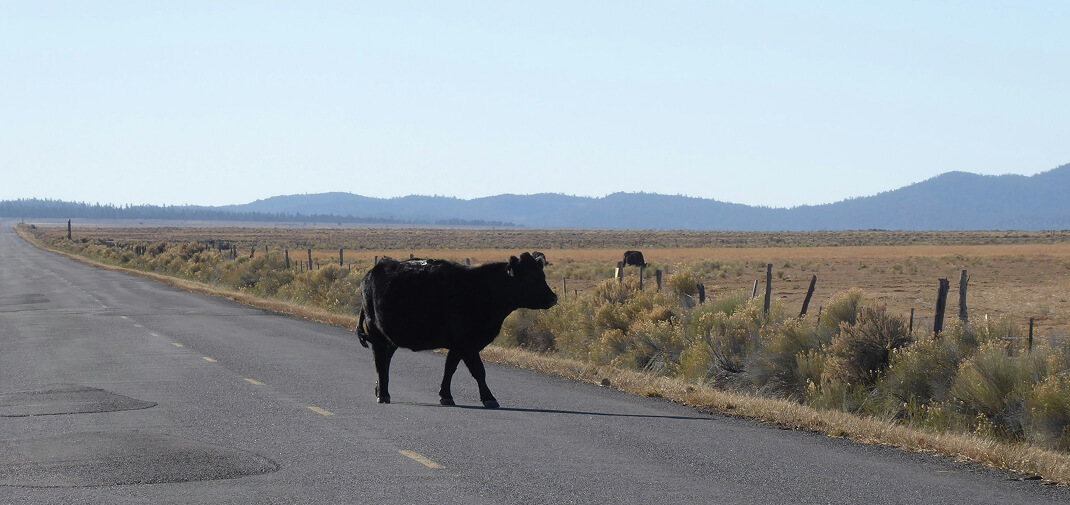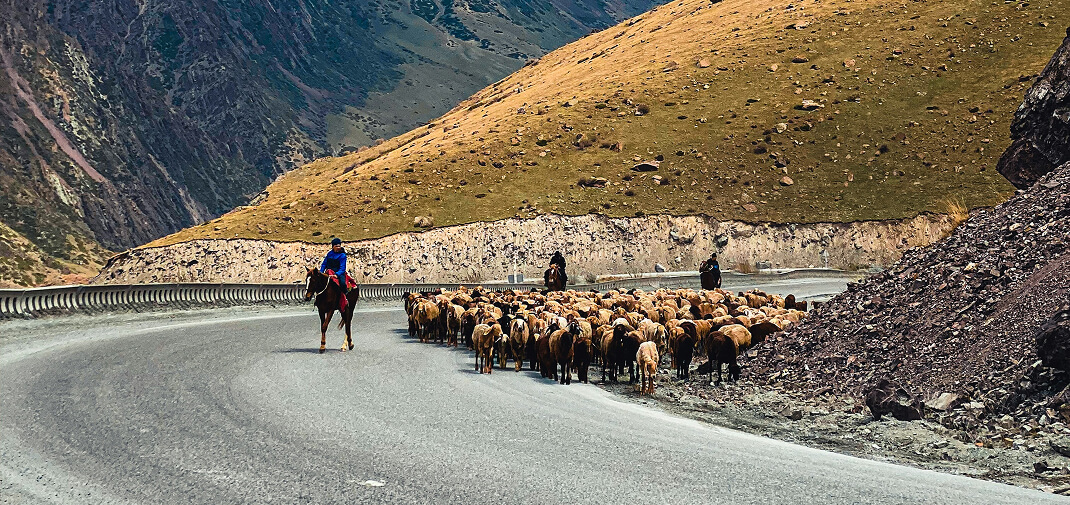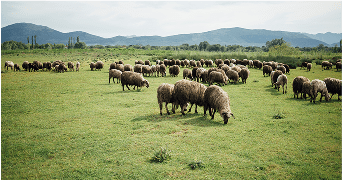
You were driving a familiar stretch of road when something you never expected happened—an animal wandered into your path. The impact left you with injuries, a totaled vehicle, and mounting questions, such as, Can I get compensation for a livestock accident? And if so, how do I prove who’s responsible?
If you were hurt in a vehicle crash caused by loose livestock, you may be entitled to compensation for your medical bills, lost wages, pain and suffering, and more. But these cases are more complex than a typical car accident. Read on to learn more about the factors that impact compensation in livestock-related accidents.
Why Livestock Accidents Are Different
Not every animal accident leads to a legal claim. For example, hitting a deer or wild animal is usually considered an “act of nature” with no one to hold accountable.
But livestock, such as cows, horses, or sheep, are domestic animals with owners. In California, those owners are typically responsible for keeping their animals secure and off public roadways. When they fail to do that, and someone gets hurt, they may be legally liable for the consequences.
That makes livestock collisions more like negligence cases than no-fault accidents. However, it also means the livestock owner could try to shift liability to you—for instance, by claiming you were speeding or distracted. Without experienced legal help, this could reduce your potential compensation under California’s pure comparative negligence laws.
When a Livestock Owner May Be Held Liable
To receive compensation for a livestock accident, you must prove that the animal’s owner was careless or negligent. That could mean that they:
- Failed to maintain proper fencing,
- Left a gate open or unsecured,
- Let animals roam freely near roads, or
- Did not respond to prior incidents or warnings.
In many cases, the owner might live nearby, or the animal may have come from an adjoining pasture or farm. Local authorities and your attorney can help investigate ownership and determine whether negligence played a role.
What Kind of Compensation Can You Recover?
If your claim is successful, you may be able to recover several types of damages. These fall into two main categories: economic (tangible losses) and noneconomic (intangible losses) damages. Let’s look at the compensation you can recover for different loss types.
Medical Expenses
Medical bills are often the most immediate concern after a serious crash. You may be entitled to compensation for:
- Emergency room visits,
- Hospital stays,
- Surgery or imaging,
- Physical therapy or rehab,
- Prescription medications, and
- Future medical treatment related to the crash.
Even if you have health insurance, you shouldn’t be stuck with co-pays, deductibles, or out-of-network charges when someone else’s negligence caused your injuries.
Lost Wages and Reduced Earning Capacity
If your injuries forced you to miss work or left you unable to return to your job, you may be eligible to recover:
- Income lost during recovery,
- Sick days or PTO used during your absence,
- Lost bonuses or commissions, and
- Loss of future income if your ability to work is permanently impacted.
Your attorney can help gather pay stubs, employer statements, and medical records to prove the financial impact of your injuries.
Property Damage
Vehicles can experience serious damage in livestock collisions, sometimes beyond the point of repair. You can seek compensation for:
- Repairs to your vehicle,
- Replacement value (if it’s totaled),
- Rental car costs, and
- Damage to personal items inside the vehicle.
After medical and wage-related losses, property damages are often the next most common type of economic compensation you can recover in these cases.
Pain and Suffering
Pain and suffering is a type of noneconomic compensation that accounts for the emotional and physical toll of the accident. These damages can address:
- Physical pain from injuries,
- Emotional trauma (e.g., anxiety, PTSD),
- Loss of enjoyment of life, and
- Scarring or permanent disfigurement.
Pain and suffering damages can vary widely depending on the severity of your injuries and their long-term impact on your life.
How Do You Prove Liability in a Livestock Accident?
Getting compensation for a livestock accident starts with proving that the other party was at fault. That means building a strong case backed by evidence.
Important elements may include:
- Police reports documenting the scene and statements;
- Animal control records, including tags or brand info;
- Photos or videos of broken fences, open gates, or road conditions;
- Witness statements confirming how the animal entered the road;
- Veterinary reports, if the animal was examined post-accident; and
- County records identifying the property owner.
Your personal injury attorney will work to coordinate the evidence-gathering process. They can help hire investigators, accident reconstruction experts, or animal identification specialists to support your case.
What If the Owner Claims It Wasn’t Their Fault?
It’s common for livestock owners to deny responsibility after a crash. They may claim:
- The animal was stolen,
- The fence was sabotaged,
- A storm or natural event caused the escape, or
- The driver was speeding or distracted.
Even if some of these factors apply, they don’t automatically erase responsibility. California law still requires reasonable care from animal owners. This is why it’s essential to work with a lawyer who understands these cases and common defenses owners present.
What If You Don’t Know Who Owns the Animal?
Don’t worry. You don’t need to solve the mystery on your own. Your attorney can help find the owner by:
- Working with law enforcement to review the incident report;
- Using photos of tags, brands, or ear markings;
- Checking county property records and brand registries; and
- Interviewing nearby landowners or ranchers.
Once the owner is identified, your lawyer can start to build a claim.
Do You Need a Lawyer for a Livestock Accident Claim?
Technically, you can file an insurance claim independently. However, this often leads to lowball offers, delays, or flat-out denials. Livestock accidents are complex cases, and insurance adjusters are trained to protect their bottom line.
A personal injury lawyer can help:
- Handle all communication with insurers,
- Provide evidence of liability,
- Calculate the full value of your damages, and
- Fight for a fair settlement or take your case to court if needed.
After the shock of a crash, you deserve to focus on healing; let your skilled legal team handle the rest.
Call Silva Injury Law to Find out What Your Case May Be Worth
At Silva Injury Law, we help people throughout the Central Valley and beyond recover after serious accidents. Founder Michael Joe Silva brings years of courtroom experience and a deep understanding of rural liability to every case.
We’ll work to identify the responsible party, build your case, and pursue the full compensation you’re entitled to so you can confidently move forward. Call Silva Injury Law today to schedule a free consultation.

